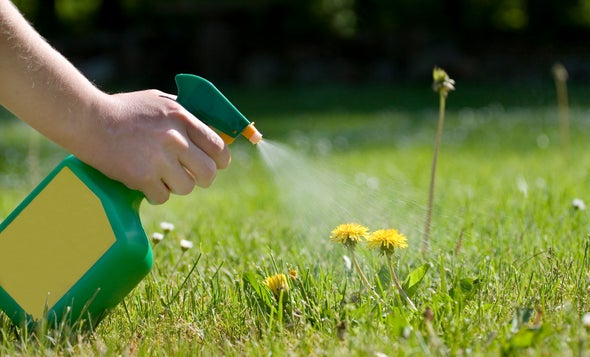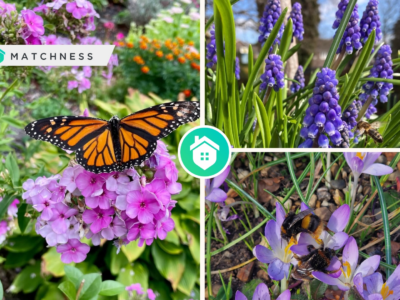In an effort to create a beautiful yard or grow their own vegetables, someone out there is living in a real-life horror story because of constant exposure to commonly used herbicides.
We tend to treat herbicides as if they’re safe because of their ubiquity: surely if they weren’t safe, herbicides like Roundup wouldn’t be used to maintain the flower beds at our kids’ schools, or the herbicide “recommended for use” by your local Home Owner’s Association. But herbicides are not as safe as most people think, especially if they contain the ingredients glyphosate or 2, 4-D. In fact, they’ve been known to have wide-ranging negative consequences on the areas treated with the herbicide, the environment at large, and the people who are consistently exposed to it.
The latter is becoming more and more common, so much so that Monsanto is being sued by people claiming Roundup has caused a variety of health problems. Herbicide usage is widely permitted in the United States, with companies like Monsanto given leeway to put potentially harmful ingredients in their products: ingredients that cause these products to be outright banned in most European countries.
Want to avoid becoming the next victim of corporate and governmental negligence? Here are some things you’ll need to know:
The Killer Ingredients
While there’s some speculation regarding the toxicity of other chemicals in popular herbicides, the primary two consumers should watch out for are glyphosate and 2, 4-D.
Glyphosate is the primary ingredient found in weed killers like Roundup, and it works by interfering with plants’ ability to produce amino acids and proteins that are necessary for growth. By cutting off their means to create these vital resources, glyphosate guarantees death for any plant it comes into contact with; even with targeted application, it’s likely glyphosate kills more than intended.
2, 4-D works the exact opposite way, accelerating the growth of the plant’s cells uncontrollably much like cancer would in the human body. The plant, not able to absorb enough resources to sustain its own unhealthy, unnatural growth, dies quickly.
Ghost Hunting: The Impacts of Herbicide Use so Far
1. The Environmental Impact
The use of herbicides can impact the environment in all kinds of ways, from murdering the vitality of your garden to things that are a little more far-reaching. For example, herbicides that leach through soil can eventually reach sources of groundwater, poisoning water supplies that many of us depend on. With repeated use of herbicides in these areas, it’s probable that levels of these chemicals will build up in the groundwater to unsafe levels quickly. Aerosolization of these chemicals has also been known to cause them to float up into the atmosphere, where precipitation will later re-distribute the chemical to unintended areas and further pollute water sources.
Moreover, it’s been found that animals who are exposed to herbicides can experience subtle physiological and developmental changes: and subtle does not mean immaterial.
2. 2, 4-D and Potential Pregnancy Risks
2, 4-D has the unfortunate side effect of mimicking and interfering with hormones in the human body, with a potentially significant impact on pregnant women. Known as an endocrine-disrupting chemical, 2, 4-D has been known to alter the production of estrogen, thyroid hormones, and androgen. There are concerns that it may affect the fertility of people exposed to it on a regular basis or even cause congenital disabilities, but nothing has yet been conclusively proven.
3. Glyphosate and Cancer
Unlike 2, 4-D and its impact on pregnancy, the link between glyphosate and non-Hodgkins lymphoma and other cancers has been established. The World Health Organization condemned the use of glyphosate in 2015, claiming that it is a probable carcinogen with links to Non-Hodgkins Lymphoma in particular, although the lawsuits against Monsanto claim that other forms of cancer have developed from exposure to glyphosate. Regardless, continuous exposure to glyphosate has been demonstrated to have adverse effects on the exposed’s health: cancer is only one of many probable outcomes.
Avoiding Herbicides in 2021
The widespread acceptance of these chemicals makes them hard to avoid, even harder not to use. Luckily, there are alternatives: you can look up ways to concoct safe herbicides at home, or you can do research on popular herbicide brands and avoid the ones with these ingredients. Whatever you decide to do, be sure not to use herbicides that contain glyphosate or 2, 4-D: the consequences could haunt you and those you love for years.




















